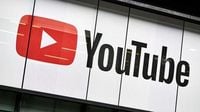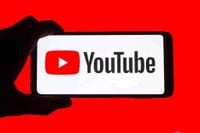On September 24, 2025, Alphabet, the parent company of Google and YouTube, made a sweeping announcement that’s sending shockwaves through the digital media landscape: YouTube will reinstate thousands of previously banned channels, many of which were removed under strict COVID-19 and election integrity policies in place since 2020. The move, outlined in a letter to House Judiciary Committee Chairman Jim Jordan, marks a significant reversal in the platform’s approach to content moderation—and it’s fueling debate from all corners about free expression, political pressure, and the future of online speech.
The letter, submitted by attorney Daniel Donovan on Alphabet’s behalf, was prompted by a lengthy Republican-led investigation into whether the Biden administration pressured tech companies to restrict certain types of speech. According to the House Judiciary Committee’s press release, Alphabet admitted that both Google and YouTube had removed content after feeling “pressed” by the White House to take down material the administration labeled as “misinformation” about COVID-19 and the 2020 presidential election—even when that content did not violate YouTube’s own rules. The company’s admission underscored the tense relationship between government and Silicon Valley over what constitutes responsible moderation versus censorship.
“Transparency regarding government interactions with private platforms is essential for fostering public trust and upholding principles of free expression,” Alphabet’s letter stated, as reported by The Verge. “It is unacceptable and wrong when any government, including the Biden Administration, attempts to dictate how the Company moderates content.” The letter went on to declare that Alphabet had resisted such efforts on First Amendment grounds, emphasizing that “bias towards a particular viewpoint is not in line with the Company’s values or the Company’s business interests.”
The announcement means that creators whose channels were terminated for repeated violations of now-retired COVID-19 and election integrity policies will have an opportunity to rejoin the platform. According to Alphabet, YouTube will begin with a limited pilot project, allowing a select group of creators to apply for reinstatement. While the company did not confirm which specific figures might return, channels linked to high-profile names such as Steve Bannon, Dan Bongino, and Robert F. Kennedy Jr. were among those previously removed under the old rules. The move is expected to affect thousands of accounts, including those of the Children’s Health Defense Fund and even former President Donald Trump, whose channel was suspended after the January 6, 2021, Capitol riot.
YouTube’s shift is part of a broader trend across Silicon Valley. Over the past year, major platforms like Meta and Elon Musk’s X (formerly Twitter) have relaxed their content moderation guidelines, rolling back bans and fact-checking programs that were once invoked to combat misinformation. In June 2023, YouTube ended its ban on discussions of possible widespread fraud or errors in the 2020 presidential election, and by the end of that year, most COVID-19 content restrictions had been lifted. The company now says it will no longer use third-party fact-checkers to label or remove content. Instead, YouTube will rely on context notes—features that allow users to add clarifications or additional information, much like the approach already tested by X. Viewers can also use comments to provide context, shifting the burden of interpretation from the platform to its community.
This recalibration has immediate implications for advertisers and marketers. As Search Engine Land notes, reinstated channels will once again be eligible to serve ads, expanding potential inventory but also raising fresh concerns about brand safety. Chris Cabaniss, co-founder of Falcon Digital Marketing, put it plainly in a LinkedIn post: “No matter which side you’re on, or your personal political beliefs, this could have a major impact of many new (or reinstated) channels coming back to YouTube and serving ads again. For you or your client, these may be channels you DO want to show ads on, or DO NOT want to show ads on. Either way, it is big news and it will be interesting to see how this plays out.”
For many conservative creators and their audiences, the announcement is being hailed as a long-overdue correction. Alphabet’s letter explicitly acknowledged the influence and reach of conservative voices, stating, “YouTube values conservative voices on its platform and recognizes that these creators have significant influence and play an important role in public discourse.” The company also admitted that it should never have relied on outside authorities in ways that limited public debate, a point that has been a rallying cry for critics of Big Tech’s moderation practices.
Yet the move is not without controversy. Critics on the other end of the spectrum argue that rolling back these policies could open the floodgates to harmful misinformation, particularly as the world continues to grapple with the lingering effects of the pandemic and prepares for another heated election cycle. The company’s decision to stop using third-party fact-checkers—a practice previously criticized by Republicans and MAGA-aligned figures—raises questions about how YouTube will balance its commitment to free expression with its responsibility to prevent the spread of demonstrably false information.
The political backdrop is impossible to ignore. Alphabet’s letter did not shy away from criticizing the Biden administration for creating a “political atmosphere that sought to influence the actions of platforms based on their concerns regarding misinformation.” However, the company was careful to emphasize that it has always “developed and enforced its policies independently,” even as it acknowledged that the pressure amounted to an overreach. As Search Engine Land and The Verge both reported, Alphabet warned lawmakers about the potential dangers of Europe’s new Digital Services Act, which could require the removal of lawful content and threaten freedom of expression on a global scale.
Meanwhile, Alphabet faces its own challenges on other fronts. The company is currently embroiled in antitrust lawsuits brought by the Department of Justice and the Federal Trade Commission, with recent court battles focusing on allegations of monopolistic practices in both search and digital advertising. These legal pressures add another layer of complexity to Alphabet’s evolving approach to content moderation, as the company navigates the intersection of regulatory scrutiny, public trust, and business imperatives.
Chairman Jim Jordan, whose subpoenas and investigation helped prompt Alphabet’s admissions, has framed the developments as a victory for transparency and a check on government overreach. The inquiry, he argues, has highlighted how political pressure can shape decisions by some of the world’s most influential communication platforms. “The DSA may open avenues for substantive regulation of lawful speech,” Alphabet warned in its letter, underscoring the stakes of ongoing legislative debates on both sides of the Atlantic.
In the end, YouTube’s decision to reinstate banned channels is more than just a policy change—it’s a flashpoint in the ongoing struggle to define the boundaries of free speech in the digital age. As platforms, governments, creators, and advertisers all jockey for influence, the question remains: who should decide what can and cannot be said online? For now, Alphabet is betting on a more open, less interventionist approach, even as it keeps a wary eye on the shifting sands of politics, law, and public opinion.
One thing is clear: as YouTube welcomes back a wave of previously banned voices, the debate over online speech is far from settled—and the world will be watching closely to see what comes next.



